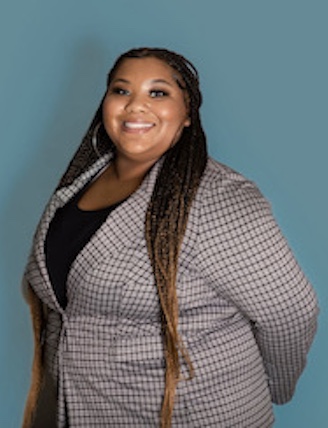How to get out of a reverse mortgage
Aug 21, 2025
•4-minute read

For many older homeowners, a reverse mortgage converts home equity into cash, allowing them to continue living in their homes in their later years. A reverse mortgage also comes with tradeoffs: It depletes the equity you may want to leave to your heirs and requires you to repay the entire loan if you move out. If your financial goals have changed, you can get out of a reverse mortgage by selling your home or refinancing it to a traditional home loan.
How a reverse mortgage works
A reverse mortgage allows older homeowners to convert their home equity into cash without selling their home or making mortgage payments.
In a reverse mortgage, you receive cash and increase the amount you owe instead of making payments and reducing your loan balance. Reverse mortgages pay funds out either as a lump sum, a series of regular payments, a line of credit, or some combination of those options.
In addition to meeting reverse mortgage requirements for age and equity, homeowners must pay property taxes, homeowners insurance premiums, and homeowners association fees. They also must maintain the property in good condition.
The most common reverse mortgage is the home equity conversion mortgage, which is backed by the Federal Housing Administration. You must be at least 62 to get an HECM and either own your home free and clear or use the proceeds from the reverse mortgage to pay off your current loan. Because HECMs are regulated, borrowers must complete a financial assessment before approval to ensure they're in a strong position to manage the loan's responsibilities.
HECMs offer protection for both borrowers and lenders, and they're often a go-to option for homeowners considering a reverse mortgage.
Rocket Mortgage® doesn't offer reverse mortgages, but knows it's important for borrowers to understand all their borrowing options.
When does the reverse mortgage need to be paid?
A reverse mortgage becomes due and payable in full when:
- When the borrower either doesn't use the home as a primary residence or no longer lives there.
- When the home is sold or the title of ownership is transferred.
- If the owner fails to adhere to the loan guidelines, such as maintaining homeowners insurance, paying property taxes, or performing regular maintenance.
- The borrower dies.
How do you pay back a reverse mortgage?
The most common way a reverse mortgage is repaid is by selling the home. After the home is sold, the proceeds are used to pay the loan balance. Any remaining funds are distributed to the borrower or their estate.
When a homeowner dies, their heirs or estate are responsible for paying back a reverse mortgage. There are a few ways to do that:
- The heirs can keep the home by refinancing the reverse mortgage into a traditional loan.
- The heirs can retire the loan by paying the balance owed or 95% of the home's appraised fair market value, whichever is less.
- The heirs or estate can sign over the title to the lender, releasing them from responsibility for the loan.
Can you get out of a reverse mortgage?
Yes, you can get out of a reverse mortgage. If this type of loan no longer fits your needs, there are several ways to pay it off.
In some cases, exiting a reverse mortgage comes with additional costs. It may be helpful to speak with a housing counselor approved by the U.S. Department of Housing and Urban Development. They can walk you through your choices and help you find the right path for your goals.
Reasons for exiting a reverse mortgage
You may decide to exit a reverse mortgage for many reasons, including:
- You need to move to a nursing home or an assisted living facility.
- You have buyer's remorse.
- Your reverse mortgage proceeds may be insufficient to cover your homeowners' insurance, property taxes, and maintenance.
- You've decided you want to leave the home to your heirs and don't want them to have to purchase it.
- You live with someone who is not on the loan, and they would no longer be able to live in the home if you die or move out.
- You no longer need the income from a reverse mortgage.
5 ways to get out of a reverse mortgage
Here are five ways to exit a reverse mortgage:
1. Use your right of rescission
Borrowers have 3 days from closing to back out of a reverse mortgage without penalties. This is the right of rescission. If you cancel within this window, all closing costs and unused loan funds are returned within 20 days. You must notify your lender in writing if you invoke the right of rescission and deliver it within the 3 days of closing.
2. Sell the house
Selling your home is a common way to pay off a reverse mortgage. The proceeds are applied toward the loan balance, and any remaining amount is yours to keep.
If the home sells for less than the loan balance, you won't be responsible for the difference. That's because HECMs are nonrecourse loans, meaning FHA insurance covers any shortfall through mortgage insurance.
3. Pay it back with your own funds
You can pay off your reverse mortgage balance, including any accrued interest, using your personal savings or assets. However, this option can strain your finances depending on how much you owe. Some lenders may offer a payment plan, so it's worth asking what's available.
4. Refinance your reverse mortgage
You can refinance your current reverse mortgage into a new reverse mortgage. This may provide you with access to a lower interest rate, more favorable loan terms, or the opportunity to switch from an adjustable to a fixed rate. Keep in mind that refinancing involves closing costs, just as any other mortgage does.
5. Take out a new loan
You may also consider replacing your reverse mortgage with a conventional mortgage. This means you'll resume monthly payments, but you'll also rebuild equity in your home over time. You'll pay closing costs and have a monthly payment, so make sure you're financially prepared.
The bottom line: Several options exist to exit a reverse mortgage
Whether you've had a change of heart, your needs have shifted, or you're thinking about your family's future, there are ways to get out of a reverse mortgage. Every situation is unique, and the right choice depends on your goals, financial standing, and long-term plans.
If you're ready to explore your home financing options and take the next step in transitioning out of your reverse mortgage, apply with Rocket Mortgage® today.

Kara Porter
Kara Porter is a freelance writer for Rocket Companies, focusing on mortgages and personal finance. She delivers clear, informative content to guide readers through the complexities of homeownership and financial planning. Kara recently graduated with honors from Southern University and A&M College and is set to begin her master's program at Syracuse University.
Related resources

6-minute read
5 alternatives to a reverse mortgage
Many older adults consider a reverse mortgage to help finance their retirement. If you're one of them, explore these alternatives to see what suits your needs.
Read more

4-minute read
How to recognize a reverse mortgage scam
Reverse mortgages are complicated and difficult to understand, which is why you need to be alert to potential scams. Learn how to avoid reverse mortgage fraud.
Read more

8-minute read
Reverse mortgage vs. home equity loan vs. HELOC: How to choose
You can use your home's equity through a reverse mortgage, home equity loan, or HELOC. Take a look at our guide to learn the pros and cons of each.
Read more